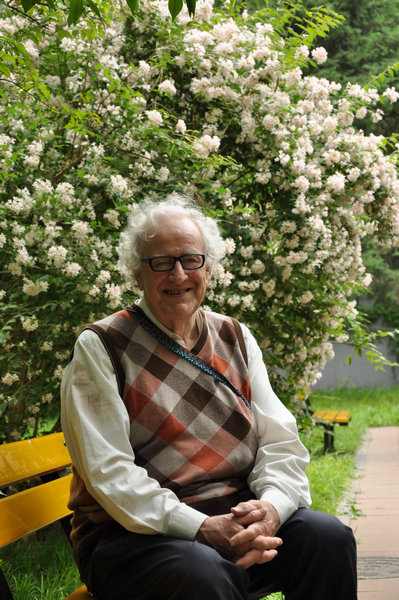 |
|
Colin Mackerras poses at the Beijing Foreign Studies University, where he teaches.[Photo by Liu Xiangrui/ China Daily] |
An early Sinologist from Australia, Colin Mackerras is still discovering China, especially its ancient art forms. Liu Xiangrui reports.
Colin Mackerras was pursuing his master's degree at Cambridge University when he learned that foreign-language teachers were needed in China in the 1960s. He decided to give it a try despite the different geopolitical conditions back then.
His visits over half a century have resulted in hundreds of academic papers and dozens of books with views from within China and the West.
An early Australian to follow Asian studies with a focus on China, Mackerras is today known as an established Sinologist. He had taken up Chinese studies at the behest of his mother.
"I was interested in Chinese culture, especially theater," Mackerras, 77, says of his desire to come to China along with his wife, Alyce, in 1964.
Back then, China had no diplomatic relations with Australia.
Despite the challenges of living in a foreign country, they were able to make friends in China, and many remain so to date.
The couple taught until 1966 and left before the start of the "cultural revolution" (1966-76).
But Mackerras continued his Chinese studies in Australia. He returned to China in 1977 and has since visited time after time, mainly to teach and for research.
More recently, he has been dividing his time between the two countries.
He is now teaching at Beijing Foreign Studies University as professor emeritus.
Fluent in Chinese, Mackerras usually rides an old bike to class and spends a lot of time with his students.
In all these years, he has also followed his passion for Chinese opera, which he describes as "music of the people" as it was played outdoors.
Mackerras, who wrote his PhD thesis on Peking Opera, still has gramophones of the ancient art form.
"It took me a while to get used to the style of Chinese opera singing, which is so different from Western opera," he says. "But both are beautiful."
As an admirer of Peking Opera master Mei Lanfang, Mackerras says he is happy to see the art form being revived with government support today.
Mackerras, who has written books on Chinese opera, has explored the relationship between Chinese opera and society.
Other than research, his knowledge comes from extensive travels within the country, including in remote ethnic regions.
He has carried out interviews with ordinary people and local officials.
"I have a perspective over a relatively long period of time in China. It's very helpful for my research," he says.